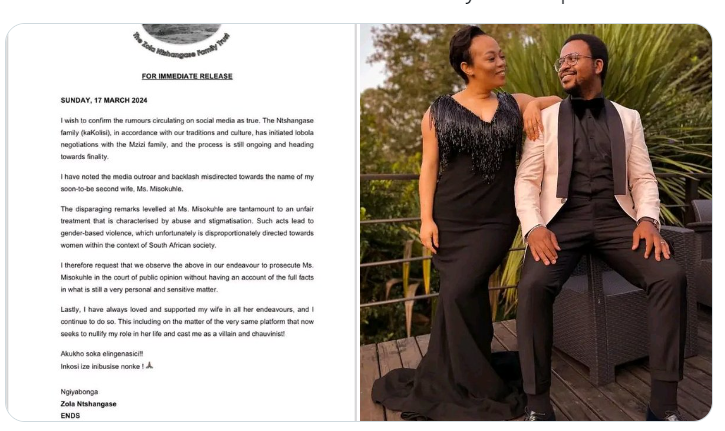Fully Funded Medical Scholarships for International Students: Many aspiring medical professionals from around the world seek financial support to pursue their dreams. Fully funded medical scholarships for international students provide a viable pathway for those who wish to study abroad without the burden of tuition fees and living expenses. These scholarships are designed to cover everything from tuition to healthcare insurance, giving students the opportunity to focus on their studies.
Students often face a myriad of challenges when applying for scholarships. Understanding the eligibility criteria, application processes, and key scholarships available is crucial for success. This knowledge enables them to navigate the complex landscape of funding opportunities and increase their chances of receiving financial aid.
For international students aiming to become healthcare professionals, exploring fully funded scholarships can open doors to renowned institutions. This not only enhances educational experiences but also fosters cultural exchanges that enrich the learning environment. Many scholarships emphasize diversity and aim to support students who demonstrate both potential and commitment to their fields.

Eligibility Criteria for Fully Funded Medical Scholarships
Fully funded medical scholarships have specific criteria that candidates must meet to be considered for funding. These criteria typically include academic qualifications, required documentation, and proof of language proficiency.
Academic Excellence and Requirements
Candidates must demonstrate a strong academic background. This often includes:
- A minimum GPA, usually around 3.0 or its equivalent.
- Relevant coursework in science subjects such as biology, chemistry, and physics.
- Successful completion of any standardized tests, such as the MCAT or equivalent, if required by the institution.
In some cases, scholarship programs may expect evidence of extracurricular involvement, particularly in health-related activities or community service. Many scholarships have eligibility restrictions based on age or previous education, emphasizing the need for candidates to carefully review each program’s specific academic requirements.
Required Documents and Procedures
Applicants must submit a comprehensive set of documents during the application process. Key documents typically include:
- Academic transcripts from previous institutions.
- A well-structured resume or curriculum vitae detailing educational and professional experience.
- Letters of recommendation, usually from academic or professional contacts who can vouch for the candidate’s capabilities.
Moreover, personal statements explaining motivations for pursuing a medical career may also be necessary. Each scholarship can have distinct application procedures, which may include submitting applications through online portals or mailing physical copies.
Language Proficiency and Tests
Non-native English speakers must often provide proof of language proficiency. Accepted tests generally include the TOEFL or IELTS. Institutions may set minimum score requirements, which candidates must meet or exceed.
Preparation for these tests is crucial, as scores can significantly influence admissions and scholarship decisions. Some scholarship programs offer preparatory courses or resources, encouraging applicants to enhance their language skills prior to testing. Meeting language proficiency requirements is essential for successful communication in medical studies and practices.
List of Fully Funded Medical Scholarships
Numerous opportunities exist for international students seeking fully funded medical scholarships. These scholarships can come from various regions, specific universities, or government initiatives.
Scholarships by Region and Country
- United States: The Bill Gates Millennium Scholars program offers funds for outstanding low-income minority students in various fields, including medicine.
- Canada: The University of Toronto provides several fully funded scholarships for international students. The Lester B. Pearson International Scholarship covers tuition, books, and living expenses.
- Australia: The Australia Awards Scholarships enable students from developing countries to study in Australia. It covers tuition, airfare, and living costs.
- Europe: The Erasmus Mundus program offers fully funded scholarships for students from outside the EU, including in the medical field.
University-Specific Medical Scholarships
- Harvard University: The Harvard Medical School’s Financial Aid offers need-based aid that can cover full tuition and living expenses for qualifying international students.
- Oxford University: The Rhodes Scholarship is prestigious and offers full funding for students from select countries to pursue graduate studies, including medicine.
- Johns Hopkins University: The Johns Hopkins School of Medicine provides scholarships based on need and merit, often covering full tuition.
- University of Melbourne: The Melbourne International Undergraduate Scholarship offers full tuition for high-achieving international students, including those in health disciplines.
Government-Funded Scholarships
- Fulbright Program: Facilitated by the U.S. government, this program offers fully funded scholarships for international students pursuing their medical degrees in the United States.
- Chevening Scholarships: Offered by the UK government, these scholarships cover tuition fees, travel costs, and living expenses for international students studying at UK universities.
- DAAD Scholarships: The German Academic Exchange Service (DAAD) provides various fully funded scholarships for international students to study in Germany, including in the medical field.
- MEXT Scholarships: The Japanese government’s MEXT scholarship allows international students to study medicine at Japanese universities with full funding for tuition and living expenses.
Application Tips for Medical Scholarships
Successful applications for medical scholarships require meticulous preparation. Candidates should pay special attention to their personal statements, recommendations, and interview techniques.
Crafting a Compelling Personal Statement
A personal statement is a crucial part of any scholarship application. It should reflect an applicant’s passion for medicine and highlight unique experiences.
Begin with a strong opening that captures interest. Follow with specific examples of relevant volunteer work, internships, or research experience. These anecdotes help illustrate commitment to the medical field.
Use clear language and avoid jargon. The statement should be organized and flow smoothly. Tailor the content to reflect the values and mission of the scholarship program.
Finally, conclude with future goals that align with the scholarship’s vision. A well-crafted personal statement can set a candidate apart from others.
Securing Strong Letters of Recommendation
Letters of recommendation play a significant role in scholarship applications. Candidates should seek recommenders who understand their skills and commitment to medicine.
Select at least three individuals, such as professors or employers. It is crucial that these recommenders can provide detailed insights into the applicant’s character and abilities. A letter should offer specific examples of achievements or contributions rather than general praise.
Provide recommenders with essential details about the scholarship and focal points to cover. This information enables them to write tailored letters. Following up politely and thanking them is essential, reinforcing relationships for future support.
Preparing for Interviews
Interviews are often a critical component of the scholarship process. Candidates should prepare by researching common interview questions and practicing their responses.
Understanding the scholarship’s goals can guide applicants in demonstrating alignment with its mission. Candidates should articulate their experiences and aspirations clearly.
Dress professionally and arrive early to projects confidence. It is essential to maintain eye contact and engage with interviewers, displaying genuine interest. Additionally, prepare thoughtful questions for the interviewers to show engagement and preparedness.
Post-Acceptance Procedures and Requirements
After receiving acceptance into a fully funded medical scholarship program, international students must navigate several critical steps to ensure a smooth transition. This includes obtaining the necessary visa, planning for any extra financial needs, and integrating into their new academic environment.
Visa and Travel Arrangements
Securing a student visa is paramount for international students. The first step is to review the specific visa requirements for the host country, as regulations can vary significantly.
Students typically need an acceptance letter, proof of funding, and medical insurance. It’s advisable to apply for the visa as soon as possible, as processing times can be lengthy.
Travel arrangements should also be made in advance, taking into account the academic calendar. Direct flights may be more convenient, but students should also consider cost-effective options, including layovers when necessary.
Financial Planning for Additional Expenses
Though scholarships cover tuition and some living expenses, students must prepare for additional costs. These can include accommodation, books, transportation, and healthcare.
Creating a detailed budget helps in managing finances effectively. Students should research estimated living costs in their specific location.
Possible financial aid or part-time work options on campus can also offset expenses. Students should confirm their eligibility for work and ensure compliance with visa regulations related to employment.
Integration into the Academic Community
Successfully integrating into the academic community enhances the educational experience. Orientation programs offered by universities are invaluable resources for new students.
These programs often include campus tours, social events, and introductions to student organizations. Engaging in campus life can foster connections and reduce feelings of isolation.
Joining study groups or academic clubs related to medicine can further aid in acclimatization. Active participation can improve academic performance while providing networking opportunities essential for professional growth.









